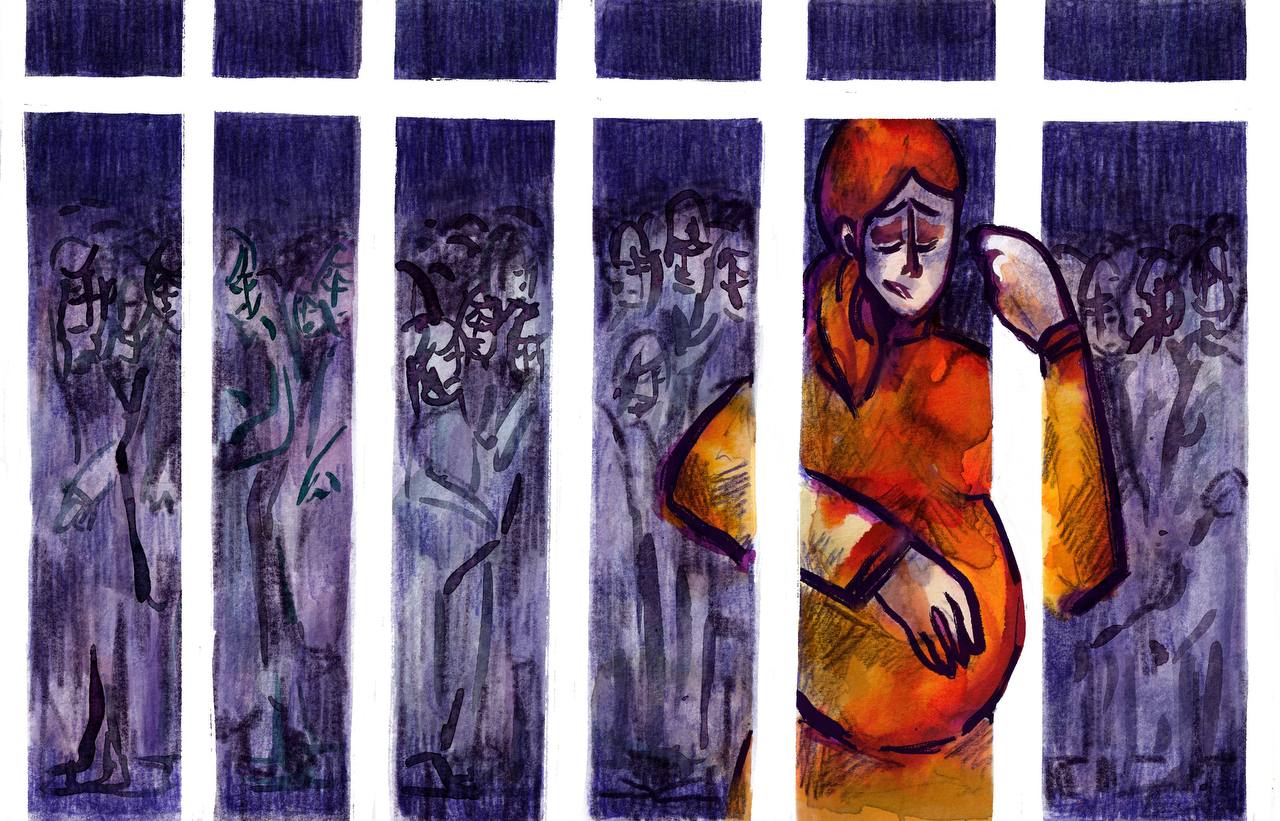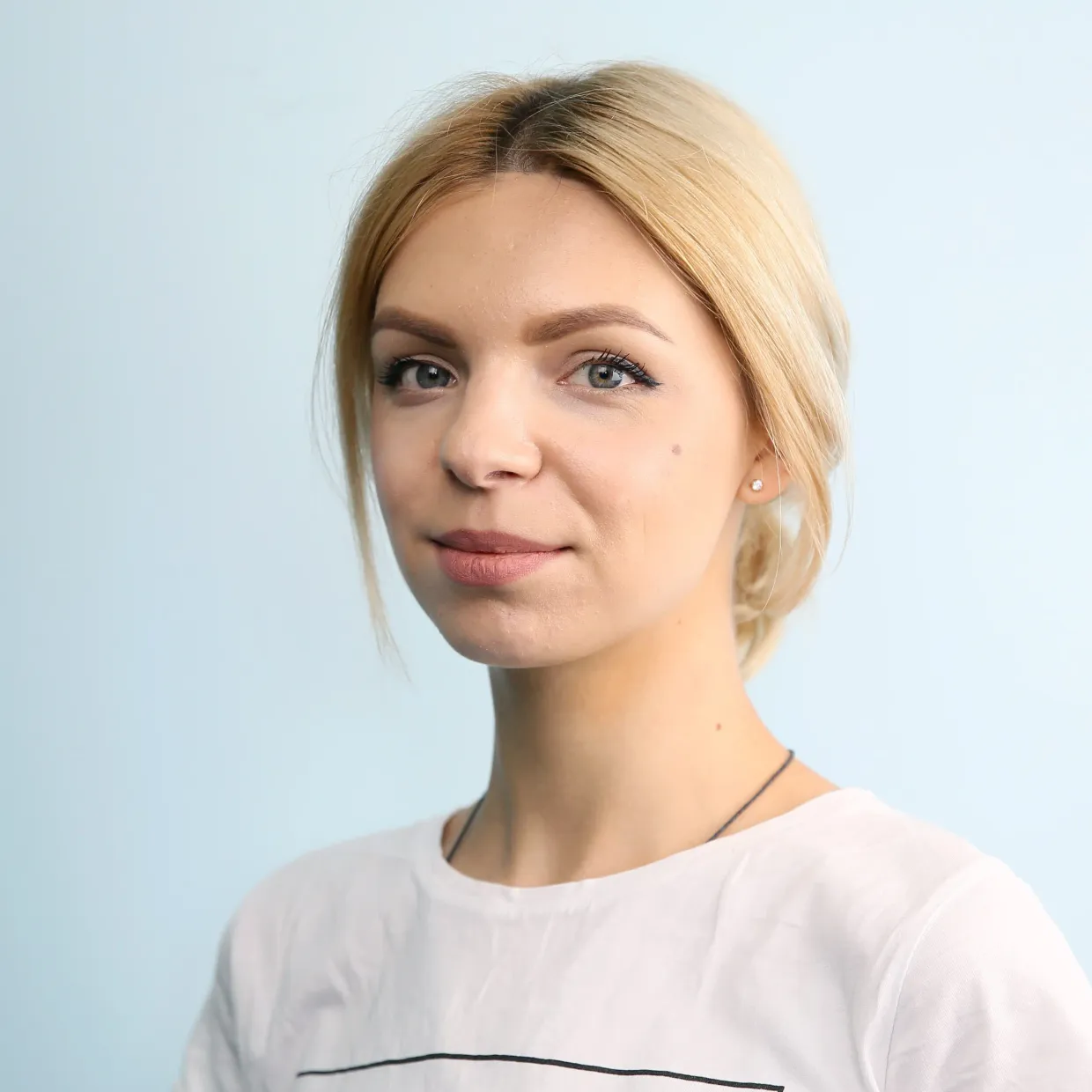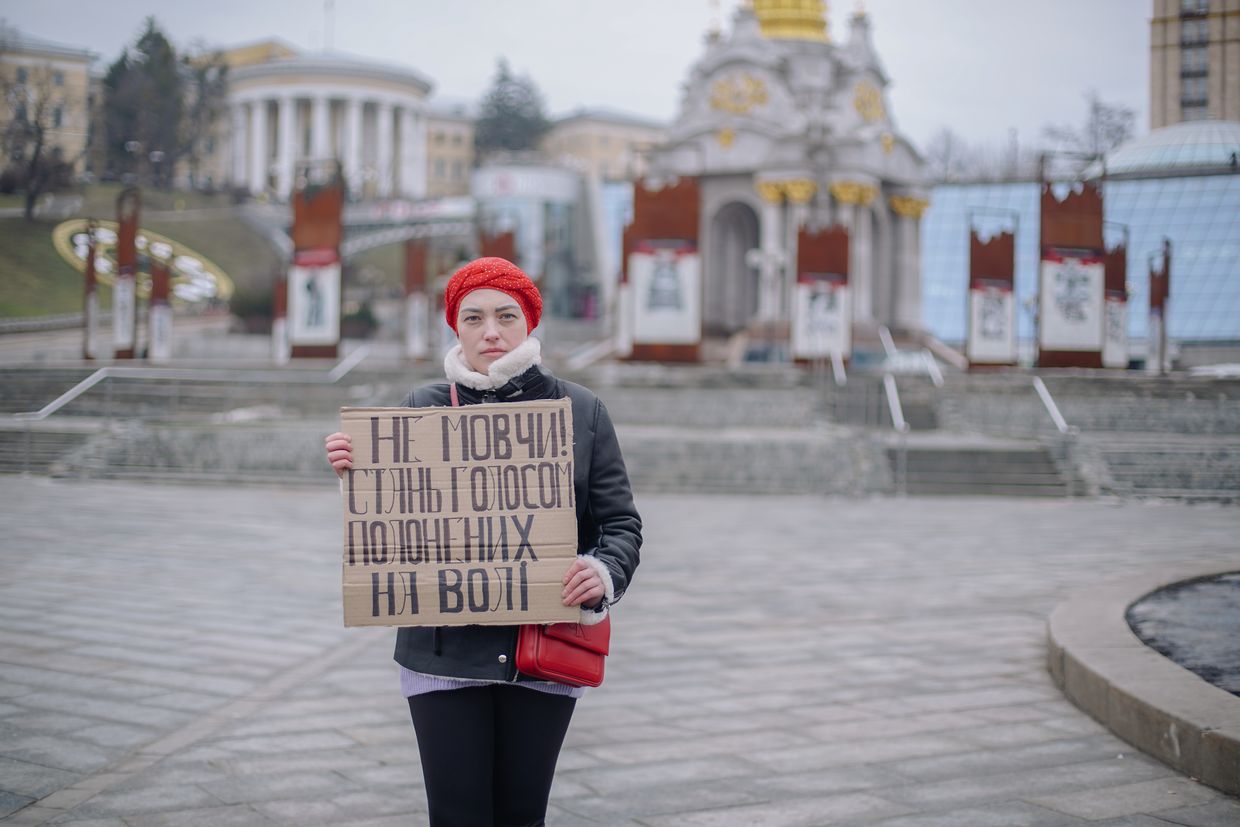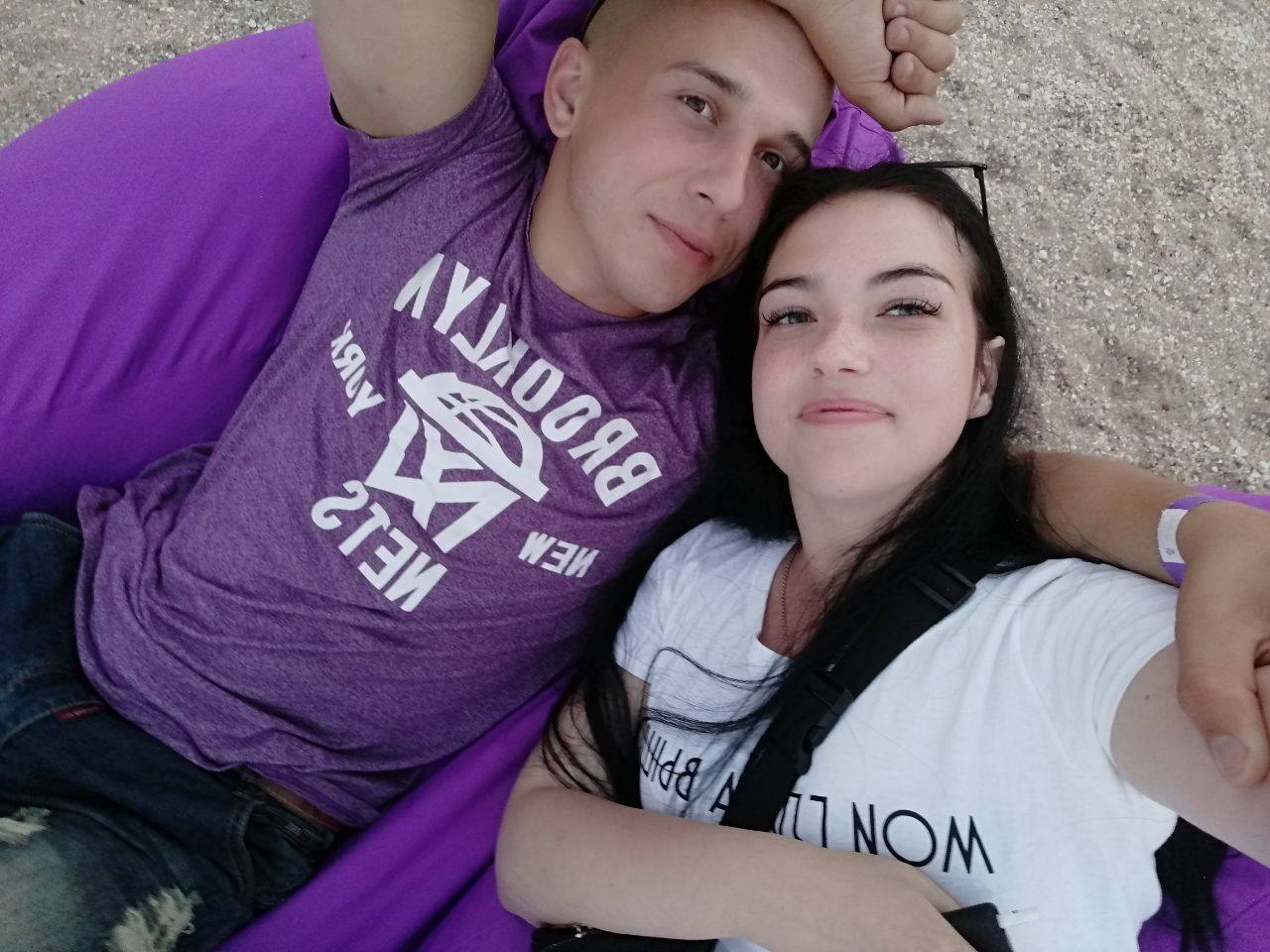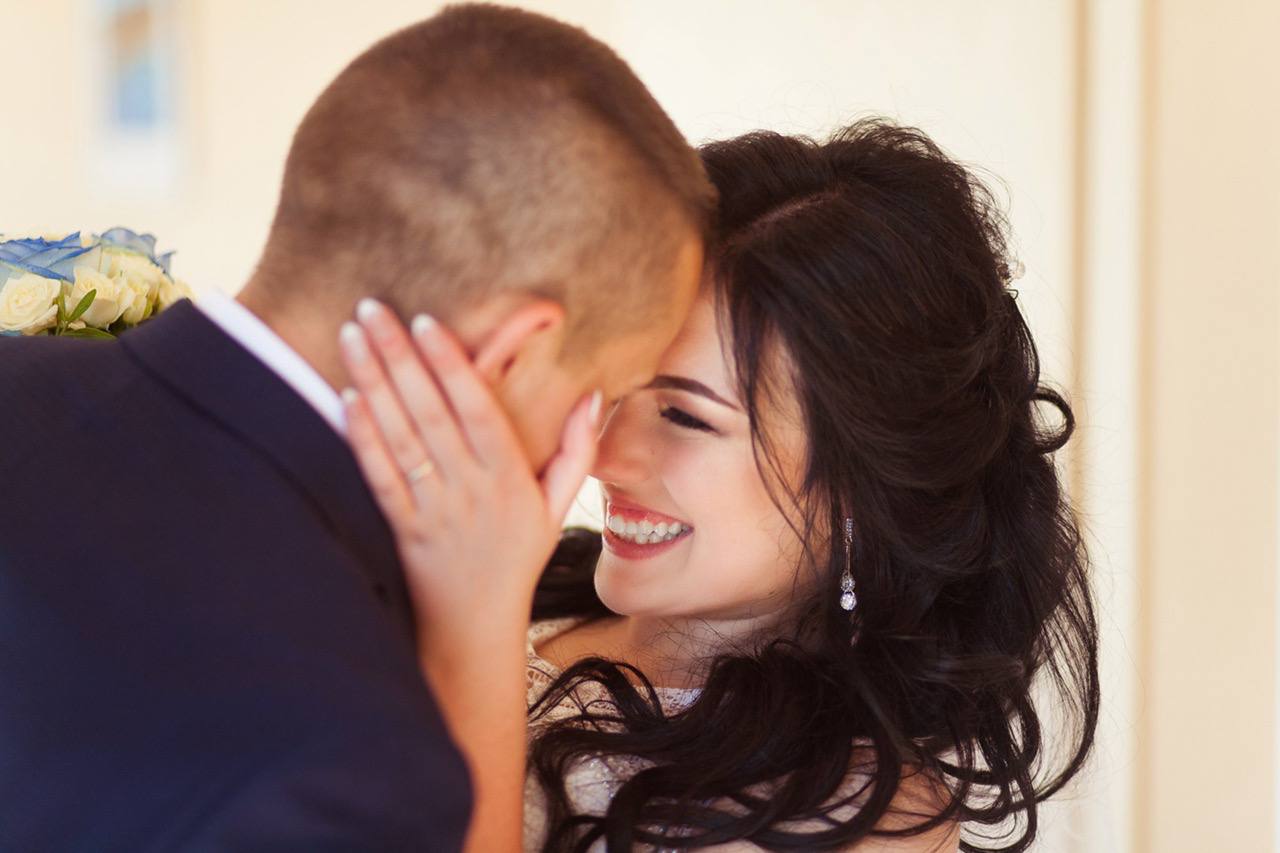For Olha Kurtmallaieva, Jan. 31 was a day of dashed hopes.
On that day, Ukraine and Russia carried out their 50th prisoner exchange since 2022, with Ukraine bringing home over 200 POWs – nearly half of them were soldiers who had for three months bravely defended the southern coastal city of Mariupol before it was finally captured by invading Russian forces in May 2022.
But one particular soldier, from the 501st Separate Naval Infantry Battalion, who Kurtmallaieva had been longing to see, wasn’t among those released. It was Ruslan, her husband, whose last name we can’t disclose due to security reasons.
Russian troops captured him in Mariupol back in April 2022, and he has been in captivity since then.
"He turned 29 in captivity, and in captivity, he turned 30," says the 24-year-old Kurtmallaieva.
She has not lost hope that one day her beloved husband will be released, but she is not sure she will be there to welcome him back home.
Kurtmallaieva has late-stage cancer, with multiple clusters of cancer cells spread throughout her body. She is currently undergoing chemotherapy in Kyiv.
"It would be amazing if I recover. But what if I don’t?" she told the Kyiv Independent.
"I don't have much time left."
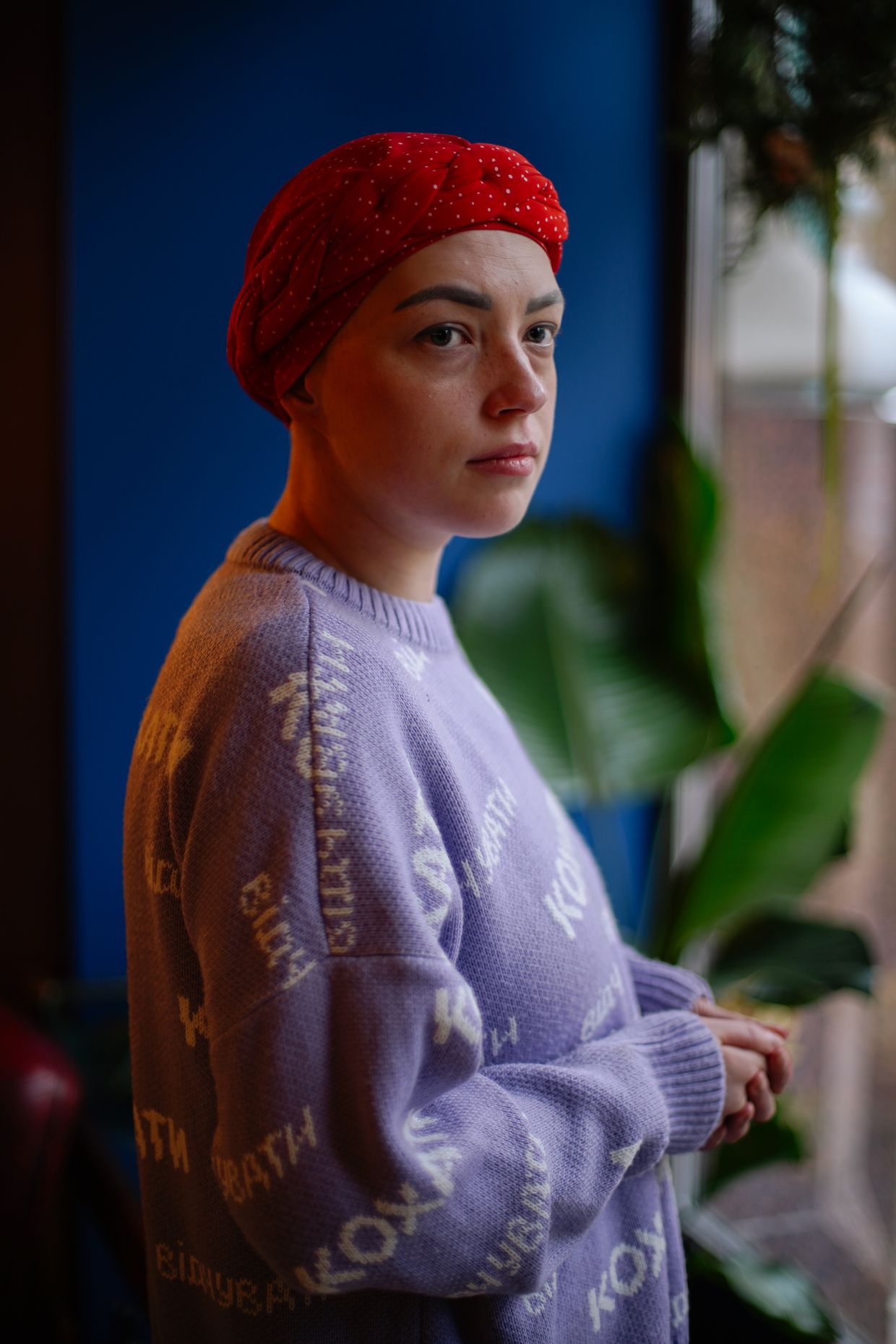
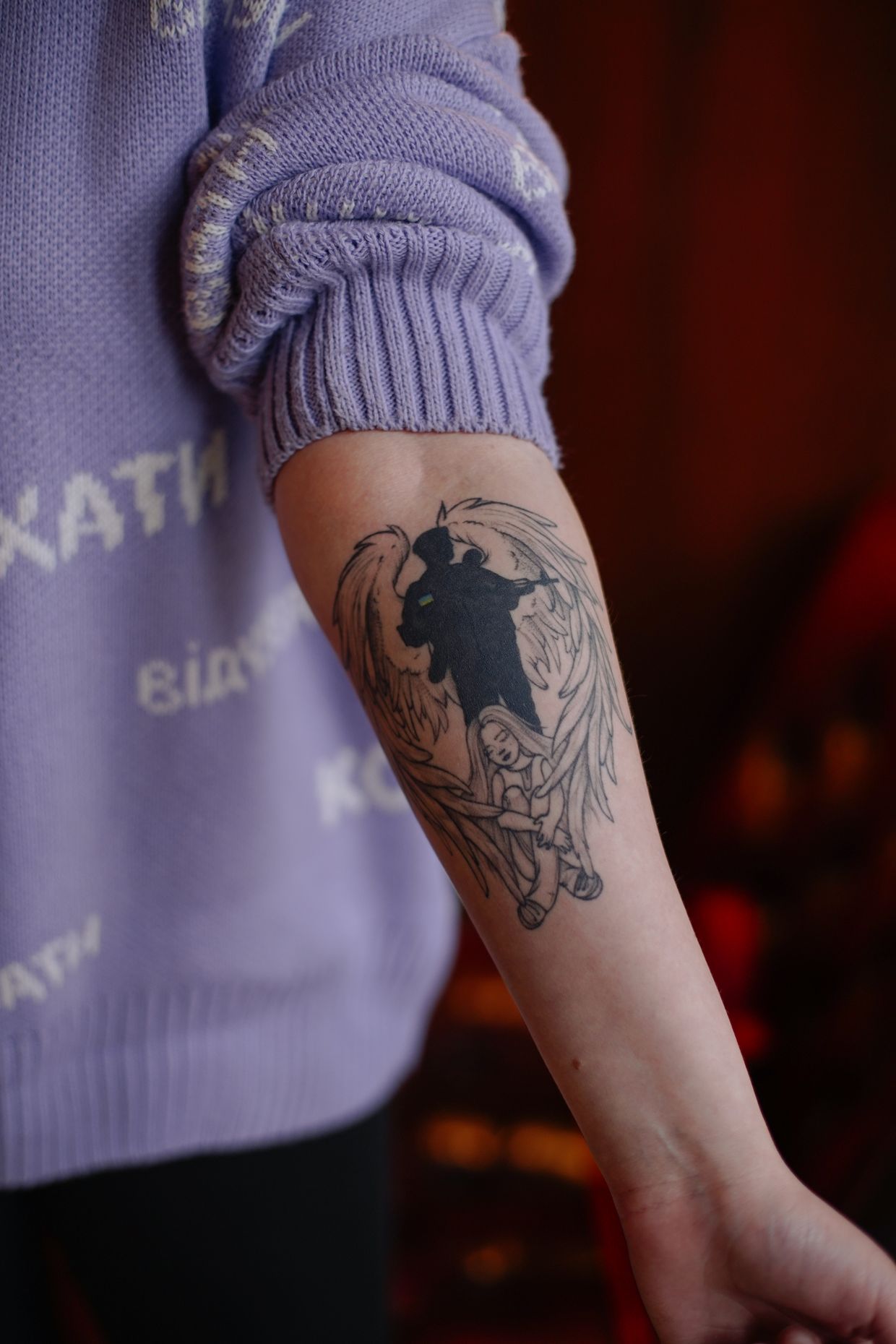
Love
The two met each other through a friend in Kurtmallaieva’s hometown of Berdiansk, in Zaporizhzhia Oblast in 2015. And it was love at first sight, Kurtmallaieva says.
Just two years later, they tied the knot.
"We had a big wedding. We were collecting money for it for a year-and-a-half,” she recalls.
Ruslan was already in the military when they met. Originally from Crimea, he relocated to Berdiansk following the Russian annexation of the peninsula in 2014.
She dreamed of a happy family life in a house full of laughter, joy, and kids, while he often said protecting his homeland against Russian aggression was his calling. He did not want their children to see the war and have to fight for freedom like he did, Kurtmallaieva says.
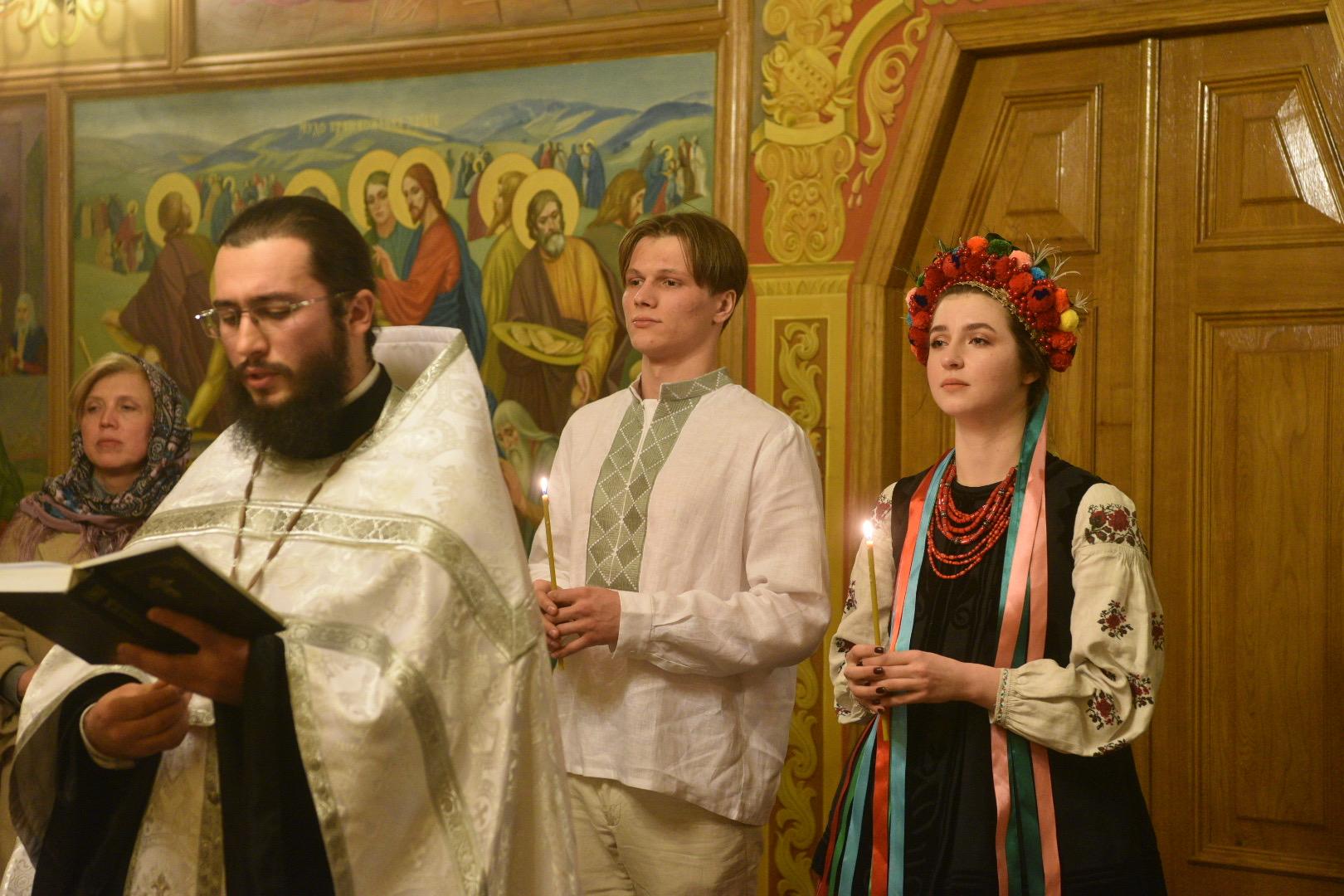
Ruslan was involved in a series of battles in the east of Ukraine after Russia invaded Donbas, and Kurtmallaieva says he was barely at home.
"Throughout our married life, he hasn't been home for about three years (in total)," Kurtmallaieva says.
However, 2022 has made Kurtmallaieva think of the years before the Russian full-scale invasion as the couple’s happiest.
"We didn’t have anything. We rented one half of a house. Our only entertainment was going to the movies, because it only cost Hr 50 (around $1.30) per ticket," she recalls.
"We went (to the movies) once a month, and it was an excuse to wear some nice dresses."
"I remember those times as the best moments."
Pain
One spring day in 2021, when Kurtmallaieva was rushing somewhere, her scarf slipped off, and she discovered there was a lump on her neck.
"I thought of cancer immediately, as my older brother died because of it. He was 26," she says.
"I went to the oncologist, did some tests, had a biopsy done, and received a diagnosis. (The cancer) was the second stage then."
If it weren't for her husband's support, she says, the diagnosis would have crushed her. To protect her, however, Ruslan hid his pain and worry from her.
He had been in a car with his fellow soldiers when Kurtmallaieva called to share the news. His calmness initially shocked her: Ruslan said everything would be all right, and that he would return home in the evening. Then he simply hung up the phone.
But through their mutual friends, she later found out how he truly reacted.
"It took them 40 minutes to drive about only 10 kilometers because they had to stop for him to get out of the car and cry. He just couldn't drive," she says, crying herself.
She soon started her treatment in Mariupol, which gave the couple a chance to see each other more often, since Ruslan served there and was allowed to go to the hospital with Kurtmallaieva.
Only once had she seen him in tears.
"I told him: 'I understand it's harder for you than it is for me.'"
"Being sick alone is truly easier than when your loved one is sick and you can't do anything about it."
But soon came another nightmare.
War
Ruslan's unit was stationed at the front line, near the village of Shyrokyne, a few kilometers east of Mariupol, when Russia launched its full-scale invasion. Although Ruslan had been right in the center of heavy fighting, Kurtmallaieva says she was "among the last people" to discover it.
Above all, he had sought to protect her.
As Russian troops advanced, his battalion soon moved to Mariupol, setting up base at one of the city's giant metallurgical enterprises, Illich Steel and Iron Works plant.
Just like in the now famous Azovstal steel plant – Ukraine's last stronghold in Mariupol – both soldiers and civilians took shelter in underground bunkers at the Illich plant.
The month her husband spent in Mariupol, under almost round-the-clock bombardment, was the hardest one for Kurtmallaieva, even though she herself was now trapped in the Russian-occupied Berdiansk, about 65 kilometers west of Mariupol along the Azov Sea coast.
Ruslan kept asking her to flee the occupied city, but she refused each time.
"I told him: 'Survive by any means necessary. I don't care how, just do it. If you don't make it, then just make two graves right away,'" Kurtmallaieva says.
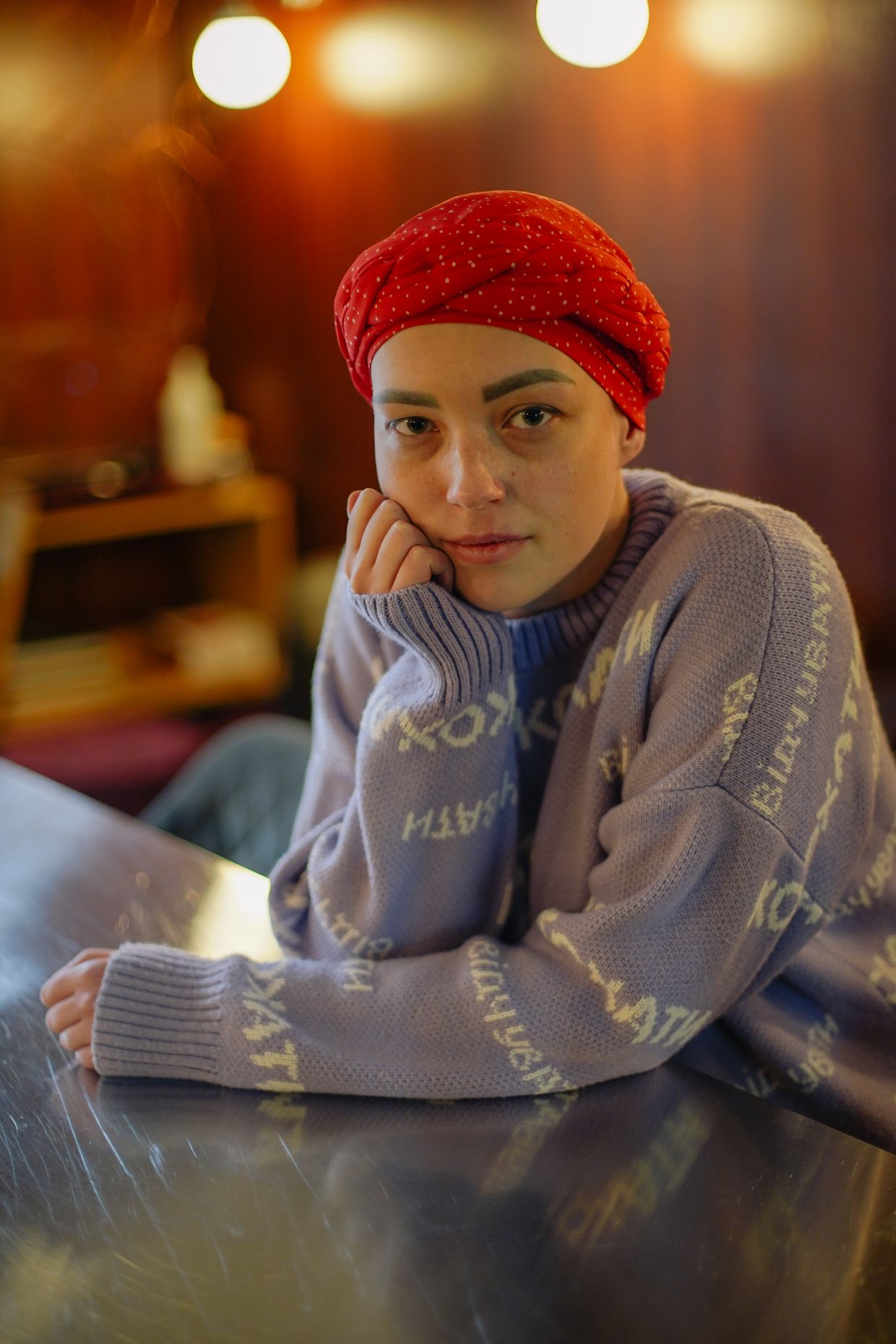
"I didn't notice the occupation. I didn't see anything," she says, explaining that when she was not hiding from the Russian troops, she spent all her time trying to find a mobile connection to reach Ruslan in besieged Mariupol.
All she could get were brief calls once or twice a week. She understood it would be impossible for Ruslan and his fellow soldiers to escape Mariupol alive.
"I hoped that maybe he would be injured and they would evacuate him in a helicopter."
"Can you imagine this feeling? Hoping that your loved one would lose a leg or an arm so he could be taken from there?" she says, with tears in her eyes.
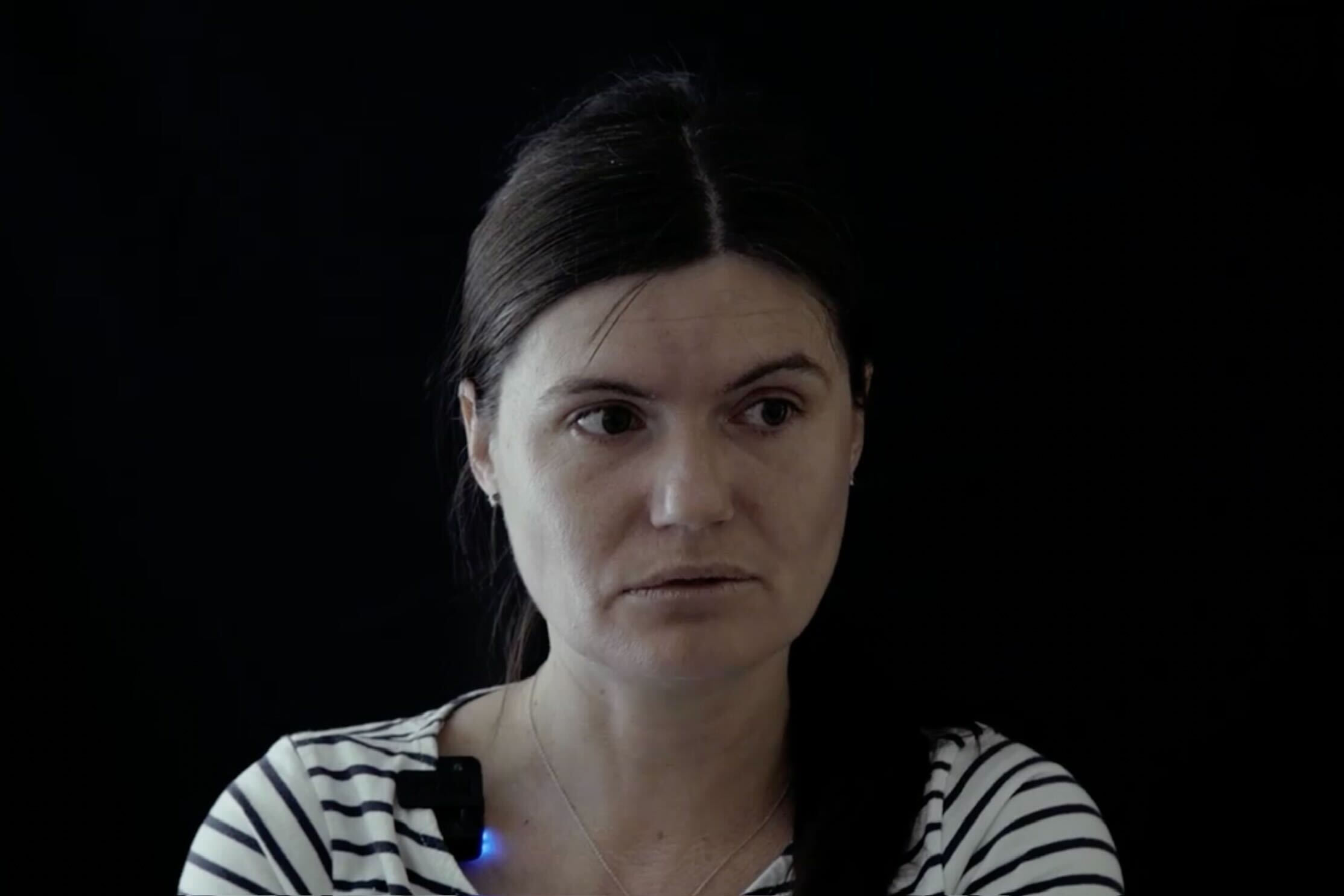
Kurtmallaieva learned from Russian Telegram messenger app channels that on April 4, 2022, Ruslan and his fellow soldiers from the 501st Separate Naval Infantry Battalion were captured by Russian forces.
"I remember when we realized they had been captured, I bowed my head to cry, but then lifted it up and thought: 'But he's alive.'"
Kurtmallaieva says she didn't understand back then what "captivity was and what could happen to them."
She spent nearly six months in occupied Berdiansk, without any treatment for cancer. After fleeing to Ukrainian-held Zaporizhzhia, Kurtmallaieva underwent a checkup that surprisingly showed the cancer was in remission.
But she would soon realize she was not recovering.
"Now I understand that the doctors simply missed something," she says.
Hope
The constant Russian attacks on the city of Zaporizhzhia made Kurtmallaieva relocate to Kyiv.
Her life now revolves around advocating for the liberation of Ukrainian defenders from Russian captivity and undergoing chemotherapy.
Even though it takes quite an effort now, Kurtmallaieva makes sure to attend rallies demanding the return of all Ukrainian POWs, and often meets with Ukrainian officials in charge of prisoner swaps.
Her entire body has been gripped by the disease: "The cancer cells are everywhere – in the liver, in the heart, in the spleen, in the bone marrow, in the bones," she says.
Her last round of chemotherapy has just started.
Although she didn't intend for Ruslan to become aware of her declining health, it happened by accident when four months ago she received an unexpected video call from a Russian phone number.
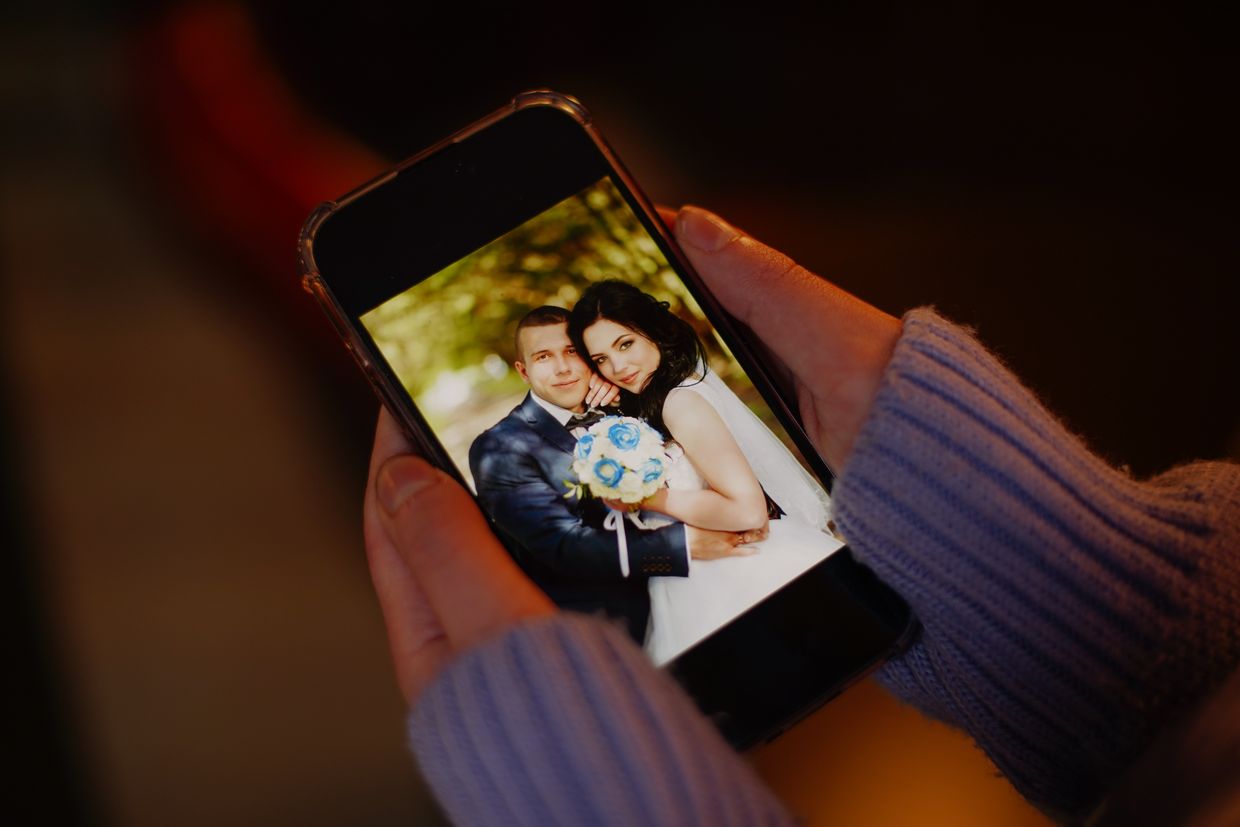
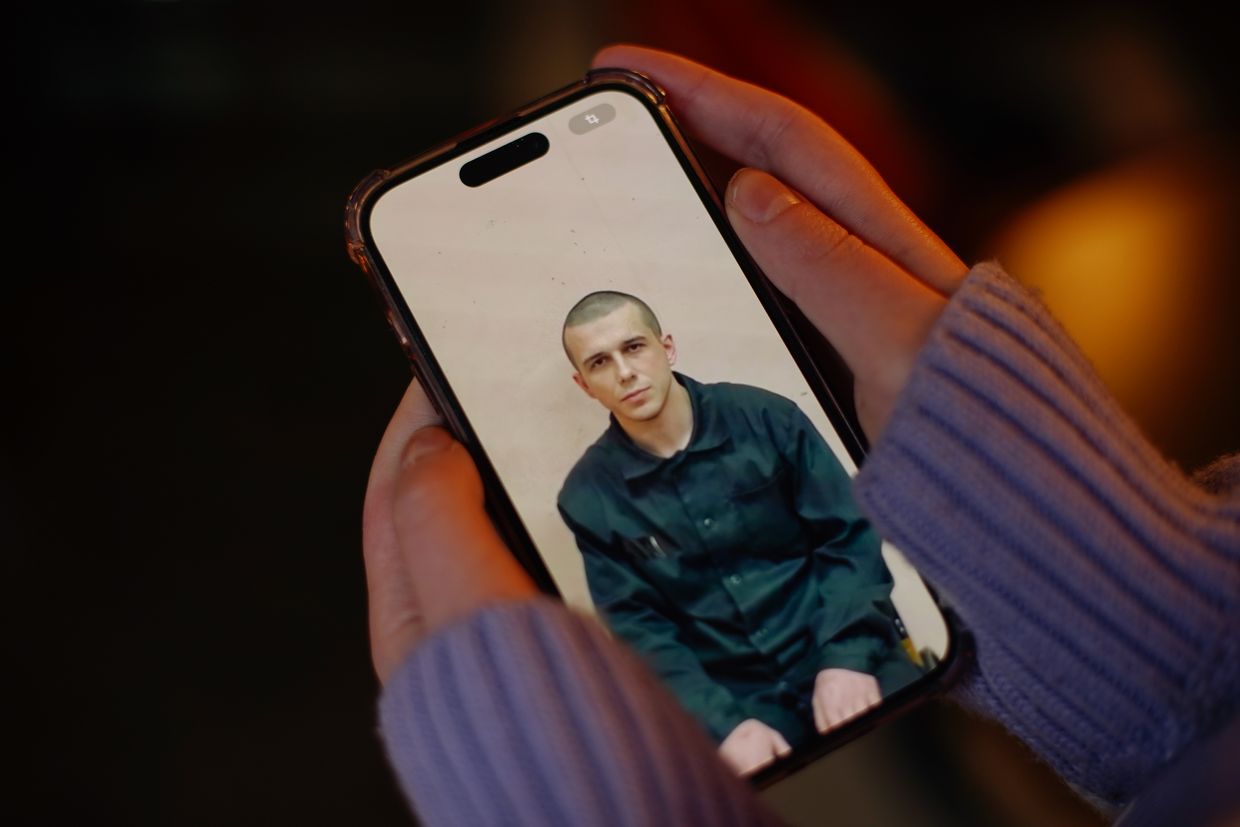
"I answered the phone and saw my husband's face, and right there in the middle of the supermarket, I sat down because I couldn't stand anymore. He was smiling, tears running down his cheeks."
"But he saw that I was bald, and he realized that something was wrong."
"The call was very emotional – we cried more than we talked. We just looked at each other," she says, in tears.
Kurtmallaieva says receiving a call from a loved one in captivity is "something out of a fantasy” and that she “couldn't even dream about it."
Ukrainian POWs are sometimes allowed to send letters from Russian captivity, but they undergo a thorough examination by Russian law enforcement and often arrive in Ukraine months after being sent. Phone calls from Russian captivity are extremely rare.
Now, Kurtmallaieva does not know if she will ever again see the man she loves more than anything in the world.
But she still has hope.
"There are times when I feel like giving up, but moments like this (the phone call) remind me that I can't afford to," Kurtmallaieva says.
"A marine's wife must always remain strong and resilient."
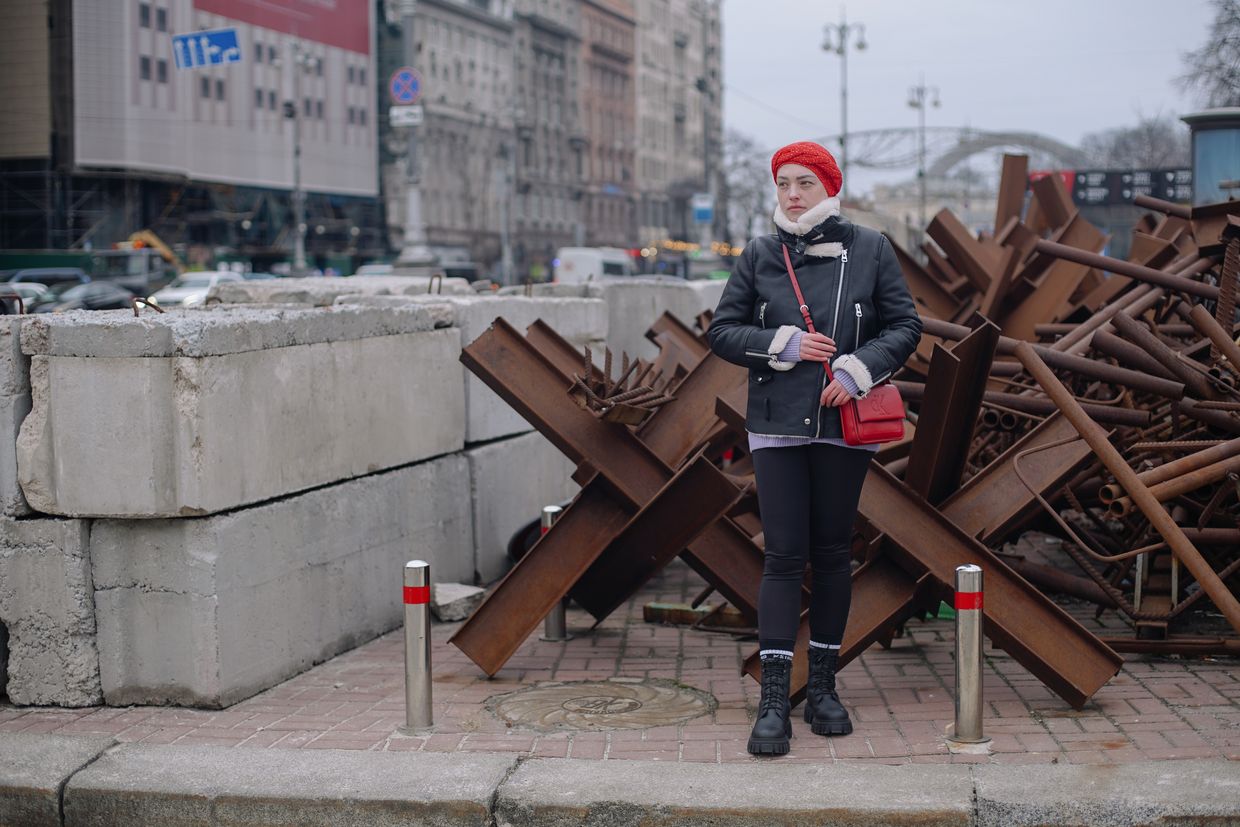
Note from the author:
Hi! Daria Shulzhenko here. I wrote this piece for you. Since the first day of Russia's all-out war, I have been working almost non-stop to tell the stories of those affected by Russia’s brutal aggression. By telling all those painful stories, we are helping to keep the world informed about the reality of Russia’s war against Ukraine. By becoming the Kyiv Independent's member, you can help us continue telling the world the truth about this war.
